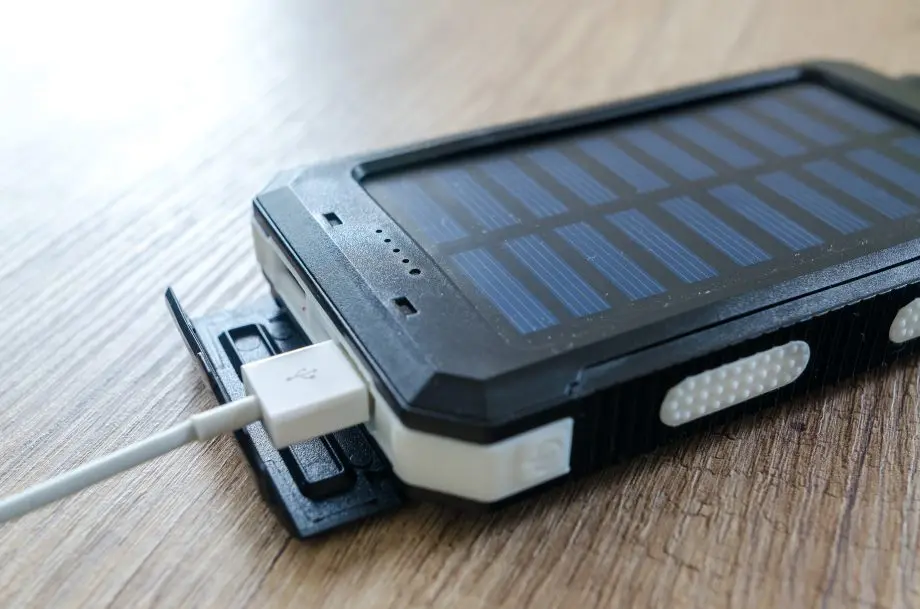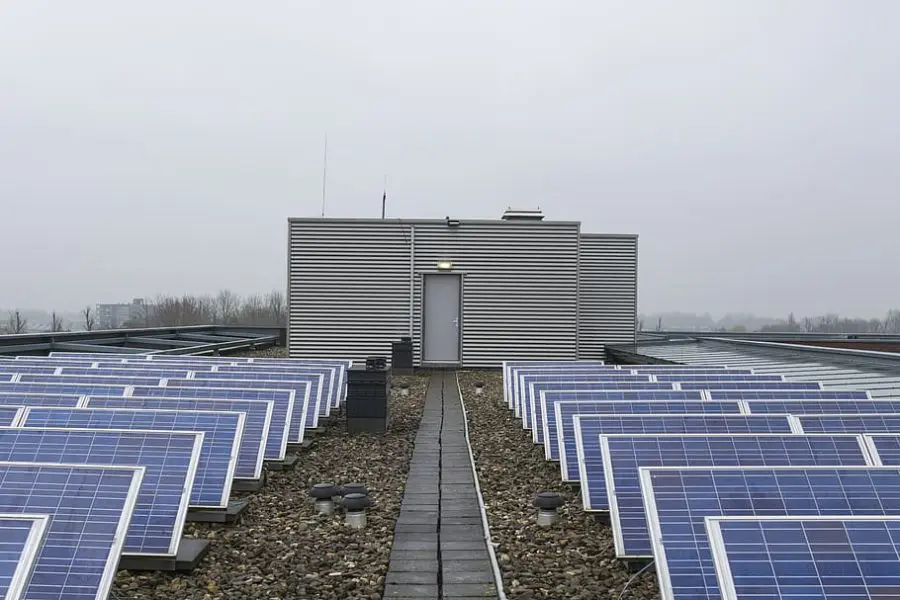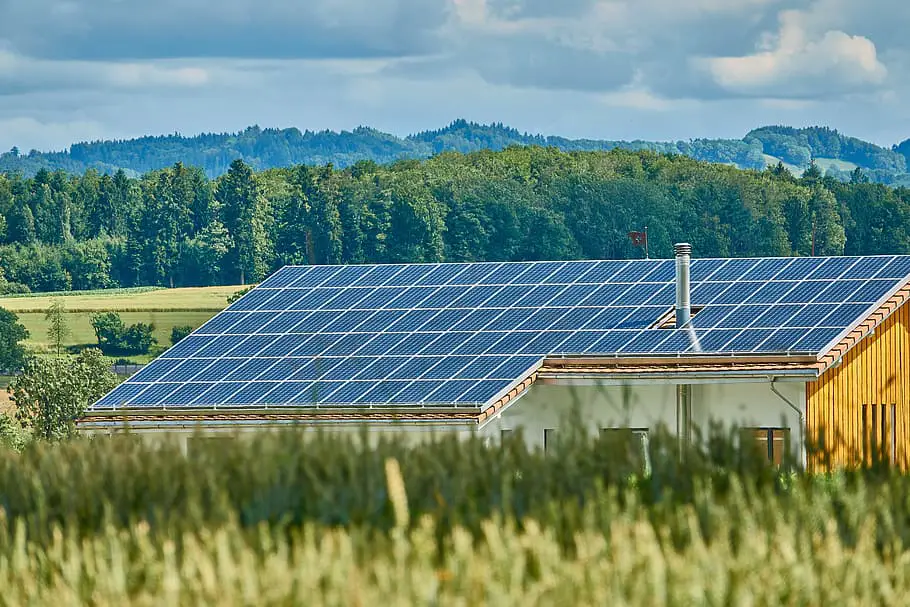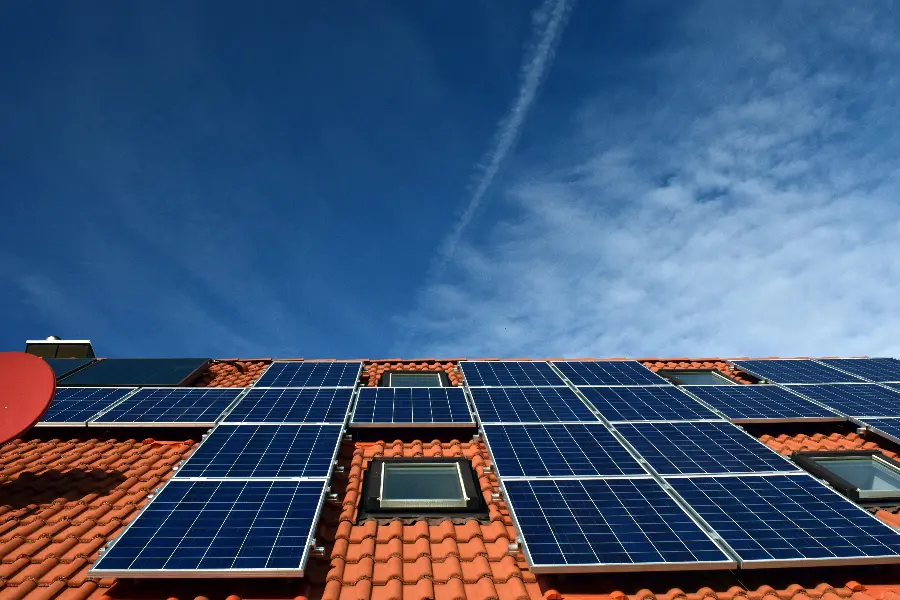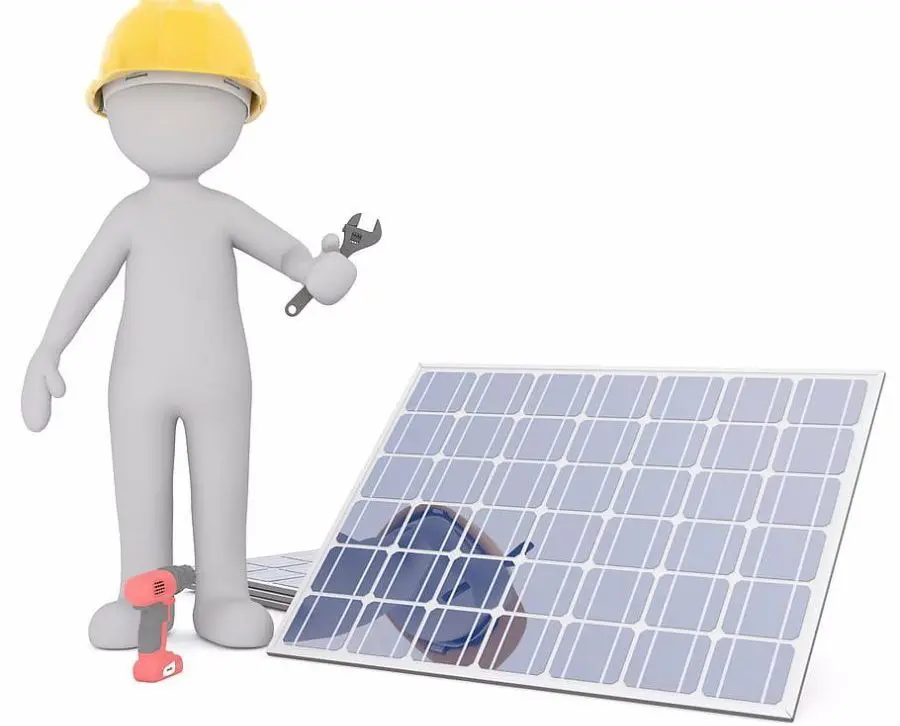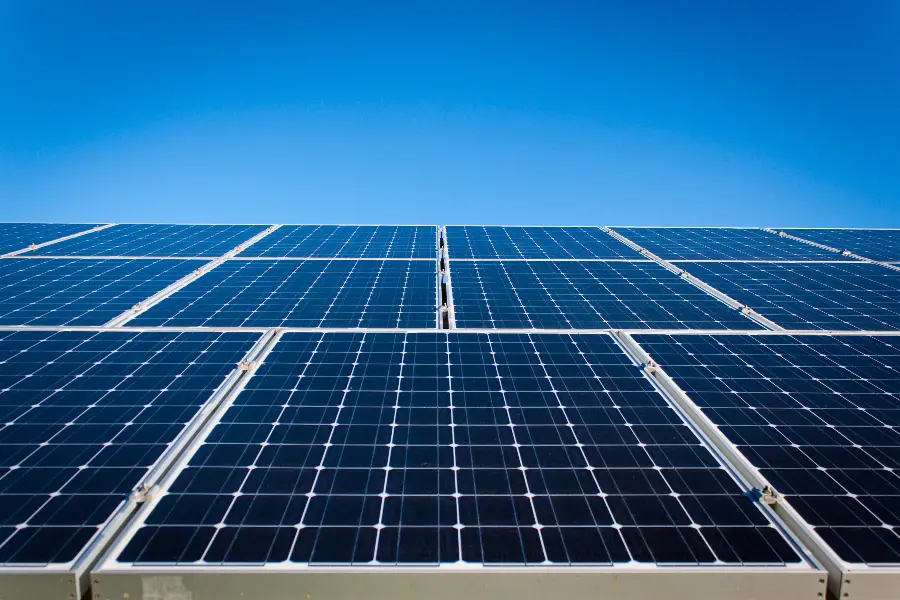
Can you run an RV on solar power? Absolutely! Explore our comprehensive guide to harnessing the sun’s energy for your next adventure on the road.
Ever wondered, Can you run an RV on solar power?’ Well, you’re not alone.
As more people embrace the nomadic lifestyle, the quest for sustainable and independent power sources is on the rise.
Imagine powering your home on wheels using the sun’s energy, making your adventures not just exciting, but also eco-friendly.
Let’s dive into the fascinating world of RV solar power and discover how it can transform your travels!
Can You Run an RV on Solar Power
Can you run an RV on solar power? It’s a question that’s crossed the mind of many RV enthusiasts and environmental advocates alike.
In this blog post, we’re going to explore this intriguing concept in depth.
From understanding the basics of RV solar power to the components of a solar power system, and even how many solar panels you’d need for your RV we’ve got it all covered.
We’ll also delve into the pros and cons of solar power for your RV, and answer some frequently asked questions.
So, buckle up and join us on this enlightening journey into the world of RV solar power!
Brief Overview of the Topic
So, let’s start at the beginning. What’s this all about? Well, the concept is pretty straightforward.
We’re talking about using solar power, energy harnessed directly from the sun to run an RV.
It’s a fascinating idea, isn’t it? Instead of relying on traditional power sources, like a generator or shore power, you use solar panels installed on your RV to capture sunlight and convert it into electricity.
This electricity can then be used to power everything in your RV, from your lights and refrigerator to your air conditioning and entertainment systems.
It’s a clean, renewable, and sustainable way to power your adventures on the open road.
Importance of Solar Power for RVs
Now, you might be wondering, why go solar? Well, there are several compelling reasons.
For starters, solar power is a renewable energy source.
Unlike fossil fuels, which are finite and contribute to climate change, the sun’s energy is virtually limitless and produces no harmful emissions.
Secondly, solar power can provide a level of independence that other power sources simply can’t match.
With a solar-powered RV, you’re not tied to campgrounds with electrical hookups or reliant on a noisy generator.
You can camp off-grid in remote locations, all while enjoying the comforts of home.
Lastly, while there’s an upfront cost to installing a solar power system, it can save you money in the long run.
After the initial investment, the energy produced is essentially free.
Plus, solar panels require little maintenance and can last for many years, making them a cost-effective solution in the long term.
In a nutshell, solar power for RVs is all about embracing sustainability, enjoying greater freedom, and making a smart long-term investment.
And that’s what we’re going to explore in this blog post. So, let’s get started, shall we?
Understanding Solar Power for RVs
Let’s delve deeper into the world of solar power for RVs. If you’ve ever been curious about how you can harness the sun’s energy to power your mobile home, you’re in the right place.
We’re going to unravel the mystery behind RV solar power, explain how it works, and highlight the benefits it brings to your RV lifestyle.
Whether you’re a seasoned RV owner or just starting your journey, understanding solar power can open up new possibilities for your adventures.
So, let’s turn our faces to the sun and embark on this enlightening journey together!
What is RV Solar Power?
Let’s start with the basics. RV solar power is essentially the use of sunlight to generate electricity for your RV.
This is achieved through the use of solar panels, which are typically installed on the roof of your RV.
There are also portable solar systems that can be set up just about anywhere that gets sun.
These panels contain photovoltaic cells that convert sunlight into direct current (DC) electricity.
This DC electricity can then be converted into alternating current (AC) electricity, which is what most RV appliances use.
In essence, RV solar power allows you to harness the power of the sun to run your RV, making it a renewable and sustainable power source for your on-the-go lifestyle.
How Does Solar Power Work in an RV?
Now, let’s break down how solar power works in an RV. The process begins with the solar panels on your RV’s roof.
When sunlight hits the panels, the photovoltaic cells within the panels convert the sunlight into DC electricity.
This electricity is then sent to a charge controller, which regulates the amount of electricity and prevents overcharging.
From the charge controller, the electricity is sent to the RV’s battery bank.
Here, the electricity is stored until it’s needed. When you turn on an appliance in your RV, the stored electricity is drawn from the batteries.
If the appliance uses AC electricity, an inverter will convert the DC electricity from the batteries into AC electricity.
And voila! You have power for your RV, all thanks to the sun.
The Benefits of Solar Power for RVs
So, why consider solar power for your RV? There are several benefits to going solar.
First and foremost, solar power is a renewable and clean energy source.
Unlike traditional power sources, it doesn’t produce harmful emissions or contribute to climate change.
Secondly, solar power can provide you with a level of independence and freedom.
With a solar-powered RV, you’re not reliant on campgrounds with electrical hookups or a generator for power.
You can camp off-grid in remote locations and still have all the power you need.
Lastly, while there’s an upfront cost to installing a solar power system, it can save you money in the long run.
After the initial investment, the energy produced is essentially free.
Plus, solar panels require little maintenance and can last for many years, making them a cost-effective solution in the long term.
In short, solar power for RVs is not just a trend, it’s a lifestyle choice that offers sustainability, freedom, and cost savings.
The Components of an RV Solar Power System
Ready to dive into the nuts and bolts of an RV solar power system?
In this section, we’re going to explore the key components that make up a solar power system for your RV.
From solar panels to inverters, each part plays a crucial role in harnessing, storing, and converting the sun’s energy into usable electricity for your RV.
Understanding these components will not only help you grasp how solar power works, but also guide you in setting up your own RV solar system. So, let’s roll up our sleeves and get started!
Solar Panels
First up, we have solar panels. These are the heart of any RV solar power system.
They’re typically installed on the roof of your RV, where they can get the maximum amount of sunlight.
Solar panels are made up of photovoltaic cells that capture sunlight and convert it into direct current (DC) electricity.
The size and number of solar panels you’ll need depend on how much electricity you plan to use.
Remember, more panels mean more power but also require more space and a larger investment.
Charge Controller
Next, we have the charge controller. This is a crucial component that regulates the voltage and current coming from your solar panels.
It’s designed to prevent your batteries from overcharging, which can cause damage and shorten their lifespan.
There are two main types of charge controllers: PWM (Pulse Width Modulation) and MPPT (Maximum Power Point Tracking).
MPPT controllers are more efficient and allow for greater power generation, but they’re also more expensive than PWM controllers.
Battery Bank
The battery bank is where the electricity generated by your solar panels is stored.
The size of your battery bank will depend on how much electricity you plan to use and how long you want to be able to run your RV without sunlight.
There are different types of batteries you can use, including lead-acid, gel, AGM (Absorbed Glass Mat), and lithium-ion.
Each type has its pros and cons in terms of cost, lifespan, maintenance, and performance, so it’s important to choose the one that best fits your needs.
Inverter
Last but not least, we have the inverter. This device converts the DC electricity stored in your batteries into AC electricity, which is what most RV appliances use.
There are two main types of inverters: modified sine wave and pure sine wave.
Pure sine wave inverters are more expensive, but they produce a type of electricity that’s very similar to what you get from a traditional power grid, making them the best choice for running sensitive electronics.
In a nutshell, these are the key components of an RV solar power system.
Each plays a vital role in harnessing the sun’s energy, storing it, and converting it into a form that can power your RV.
Can an RV Run Solely on Solar Power?
Now that we’ve covered the basics of an RV solar power system, you might be wondering, Can an RV run solely on solar power?
It’s a great question and one that many RV owners ask. In this section, we’re going to delve into this topic, looking at the factors that can affect the feasibility of running an RV entirely on solar power and the role of battery storage in this setup.
Whether you’re dreaming of off-grid adventures or simply looking to make your RV travels more sustainable, this is information you won’t want to miss. Let’s dive in!
Factors Affecting the Feasibility
Running an RV solely on solar power is indeed possible, but several factors can affect its feasibility.
First, the amount of sunlight your solar panels can capture plays a significant role.
This depends on your geographical location, the time of year, and the weather conditions.
For instance, if you’re camping in a location with limited sunlight or during a season with shorter daylight hours, your solar panels might not generate enough power for all your needs.
Second, the energy consumption of your RV is another crucial factor.
The more electricity your appliances and devices use, the more solar power you’ll need.
If you have energy-hungry appliances like air conditioners or large refrigerators, running solely on solar power might be challenging.
Lastly, the size and efficiency of your solar power system also matter.
A larger system with more efficient components can generate and store more power, increasing the feasibility of running your RV solely on solar power.
The Role of Battery Storage
Battery storage plays a pivotal role in running an RV solely on solar power.
Your batteries store the electricity generated by your solar panels, allowing you to use it when needed, such as during the night or on cloudy days when your panels aren’t generating much power.
The capacity of your battery bank determines how much power you can store.
If you have a large battery bank, you can store more power, increasing the likelihood of being able to run your RV solely on solar power.
However, larger battery banks are more expensive and take up more space.
In addition, the type of batteries you use can also impact your solar setup.
For instance, lithium-ion batteries are more efficient and have a longer lifespan than traditional lead-acid batteries, making them a better choice for a solar-powered RV.
In conclusion, while it’s possible to run an RV solely on solar power, it requires careful planning and consideration of factors like sunlight availability, energy consumption, and the size and efficiency of your solar power system.
How Many Solar Panels Do You Need for an RV?
One of the most common questions we get asked is, How many solar panels do I need for my RV?
It’s a crucial question, as the number of panels can significantly impact the effectiveness of your solar power system.
In this section, we’re going to explore the factors you need to consider when determining the number of solar panels you need.
We’ll also guide you on how to calculate the number of panels needed for your specific situation.
So, whether you’re a weekend warrior or a full-time RVer, stick around as we shed light on this important aspect of RV solar power.
Factors to Consider
When determining the number of solar panels you need for your RV, there are several factors to consider.
First, you need to think about your energy consumption. How much electricity do you use in a day?
You’ll need to consider all the devices and appliances you’ll be using in your RV, from lights and fans to refrigerators and air conditioners.
The more power you use, the more solar panels you’ll need to meet your energy needs.
Second, consider the amount of sunlight you’ll typically receive. If you’re traveling in areas with plenty of sunshine, you might not need as many panels.
But if you’re in areas with less sunlight or during seasons with shorter days, you’ll need more panels to generate the same amount of power.
Lastly, the efficiency of your solar panels is also important.
Higher-efficiency panels can generate more electricity from the same amount of sunlight, meaning you might need fewer panels.
However, these tend to be more expensive, so it’s a trade-off you’ll need to consider.
Calculating the Number of Panels Needed
Once you’ve considered these factors, you can start calculating the number of solar panels you need. Here’s a simple way to do it:
Calculate your daily energy usage in watt-hours (Wh). You can do this by adding up the power consumption of all your devices and appliances, multiplied by the number of hours you use them in a day.
Estimate the number of hours of peak sunlight you’ll receive in a day. This varies depending on your location and the time of year, but a rough average for many places is about 5 hours.
Divide your daily energy usage by the hours of peak sunlight to get the amount of solar power you need to generate per hour.
Finally, divide this number by the wattage of the solar panels you’re considering to get the number of panels you need.
Remember, this is a rough estimate and it’s always a good idea to have a bit of extra capacity to account for less-than-ideal conditions.
It’s also worth noting that your RV’s roof space might limit the number of panels you can install, so you’ll need to take this into account as well.
The Process of Converting an RV to Solar Power
Are you ready to take the leap and convert your RV to solar power? If so, you’re probably wondering about the process involved.
In this section, we’re going to walk you through the steps to convert an RV to solar power and discuss the considerations you need to keep in mind during the conversion process.
Whether you’re a DIY enthusiast or planning to hire a professional, understanding the process can help you make informed decisions and ensure a smooth transition to solar power.
So, let’s get started on this exciting journey toward a more sustainable and independent RV lifestyle!
Steps to Convert an RV to Solar Power
Converting an RV to solar power involves several steps. Here’s a general overview:
Assess Your Energy Needs: The first step is to determine how much electricity you use in your RV.
This will help you figure out the size and capacity of the solar power system you need.
Choose Your Components: Based on your energy needs, choose the components for your solar power system.
This includes solar panels, a charge controller, batteries, and an inverter.
Remember to consider factors like efficiency, cost, and space when making your choices.
Install the Solar Panels: The solar panels are usually installed on the roof of your RV for maximum sunlight exposure.
You’ll need to secure them properly to withstand the rigors of travel.
Set Up the Charge Controller and Inverter: The charge controller and inverter are typically installed inside the RV.
The charge controller regulates the power coming from the solar panels to the batteries, while the inverter converts the DC electricity from the batteries into AC electricity for your appliances.
Connect the Batteries: The batteries are connected to the charge controller and inverter to store the electricity generated by the solar panels.
Make sure to follow safety guidelines when handling and connecting batteries.
Test Your System: Once everything is set up, test your system to ensure everything is working correctly.
Check the output of your solar panels and the charging of your batteries.
Considerations During the Conversion Process
During the conversion process, there are several considerations to keep in mind:
Safety: Working with electricity can be dangerous. Always follow safety guidelines.
Consider hiring a professional if you’re not comfortable doing the installation yourself.
Space: Your RV’s roof space may limit the number of solar panels you can install.
Also, consider where you’ll store the batteries, as they can take up a significant amount of space.
Cost: The cost of a solar power system can vary widely depending on the components you choose.
Make sure to budget for the initial investment as well as any maintenance costs.
Regulations: Some areas have regulations regarding solar panel installations.
Check local regulations to ensure your installation is compliant.
Maintenance: While solar power systems require little maintenance, you’ll still need to clean your solar panels regularly and check your system for any issues.
Remember, converting your RV to solar power is a significant project, but with careful planning and consideration, it can provide you with a renewable and sustainable power source for your RV adventures.
The Pros and Cons of RV Solar Power
As with any significant decision, it’s important to weigh the pros and cons before converting your RV to solar power.
In this section, we’re going to take a balanced look at the advantages and challenges of RV solar power.
From the freedom of off-grid living to the initial investment costs, we’ll cover all the key points you need to consider.
By the end of this section, you’ll have a clear understanding of whether solar power is the right choice for your RV lifestyle.
So, let’s dive into the world of RV solar power and explore its upsides and downsides!
Advantages of RV Solar Power
Energy Independence: One of the biggest advantages of RV solar power is energy independence.
With a solar power system, you can generate your own electricity wherever you are, freeing you from the need to find and pay for hookups at campgrounds.
Cost Savings: While there’s an initial investment involved, a solar power system can save you money in the long run.
You’ll save on campground fees, generator fuel, and maintenance costs. Plus, sunlight is free!
Environmentally Friendly: Solar power is a clean, renewable energy source.
By using solar power, you’re reducing your carbon footprint and contributing to a more sustainable future.
Quiet Operation: Unlike generators, solar power systems operate silently.
This means you can enjoy the peace and quiet of your surroundings without any noise disruption.
Low Maintenance: Solar power systems require very little maintenance.
Apart from occasional cleaning and checking the system for any issues, there’s not much else you need to do.
Disadvantages and Challenges of RV Solar Power
Initial Investment: The initial cost of a solar power system can be quite high, especially if you opt for high-quality components.
However, the cost can be offset by the savings you’ll make over time.
Dependent on Weather: Solar power systems rely on sunlight, which means their performance can be affected by weather conditions.
On cloudy days or during winter months, your system may not generate as much power.
Space Requirements: Solar panels take up space on your RV’s roof, and batteries require storage space inside your RV.
This can be a challenge, especially in smaller RVs.
Complex Installation: Installing a solar power system can be complex, especially if you’re not familiar with electrical systems.
You might need to hire a professional, which adds to the cost.
Not Suitable for All Appliances: While solar power can run most small appliances, it might not be enough for energy-hungry appliances like air conditioners or large refrigerators.
You might need to adjust your energy usage or invest in more efficient appliances or have a larger solar array.
In conclusion, while there are clear advantages to RV solar power, it’s not without its challenges.
It’s important to consider both sides before making the decision to convert your RV to solar power.
Can You Run an RV on Solar Power? FAQs
As we delve deeper into the topic of RV solar power, it’s natural to have a few questions.
In fact, we’ve gathered some of the most frequently asked questions on this topic to help clear up any lingering doubts or curiosities you might have.
From the feasibility of running an RV solely on solar power to the process of converting your RV to solar, we’ll provide clear and concise answers to these common queries.
So, let’s tackle these FAQs and shed some light on the intriguing world of RV solar power!
Q: Can an RV run on just solar power?
A: Yes, an RV can run on just solar power, but it depends on several factors.
These include the amount of sunlight you get, the efficiency of your solar panels, the capacity of your battery storage, and your energy usage.
If you use a lot of power-hungry appliances, you might need a supplementary power source like a generator or shore power.
Q: How many solar panels do I need to run an RV?
A: The number of solar panels you need to run an RV depends on your daily energy consumption and the wattage of the solar panels.
On average, an RV needs about 120 watts of energy, which can be provided by three 400-watt panels, ten 200-watt panels, or any other combination that meets your energy demand.
However, this is a rough estimate and actual needs can vary based on your specific usage and the efficiency of your panels.
Q: Will a solar panel run an AC in an RV?
A: Running an air conditioner on solar power can be challenging due to the high energy consumption of AC units.
While it’s technically possible, you would need a large number of solar panels and a substantial battery bank to run an AC for extended periods.
It’s also important to consider the efficiency of your AC unit and try to use it sparingly to conserve energy.
Q: How do I convert my RV to solar power?
A: Converting an RV to solar power involves several steps.
First, you need to assess your energy needs to determine the size of the solar power system you need.
Then, choose the components for your system, including solar panels, a charge controller, batteries, and an inverter.
Install the solar panels on your RV’s roof, set up the charge controller and inverter inside your RV, and connect the batteries.
Finally, test your system to ensure everything is working correctly.
It’s a complex process, so you might want to consider hiring a professional if you’re not comfortable doing it yourself.
Can You Run an RV on Solar Power Conclusion
As we reach the end of our journey exploring the world of RV solar power, it’s time to reflect on what we’ve learned.
From understanding how solar power works in an RV to weighing the pros and cons, we’ve covered a lot of ground.
In this final section, we’ll recap the main points and share some final thoughts on the topic.
Whether you’re considering a switch to solar power or just curious about the possibilities, we hope this guide has shed some light on the subject.
So, let’s wrap things up and look back at our solar-powered adventure!
Recap of the Main Points
We began our exploration by understanding what RV solar power is and how it works.
We learned that solar power for RVs involves converting sunlight into electricity using solar panels, a charge controller, batteries, and an inverter.
We then delved into the components of an RV solar power system, discussing the role and function of each component.
We also explored the feasibility of running an RV solely on solar power and discussed the factors that affect this, such as the amount of sunlight, the efficiency of the solar panels, and the capacity of the battery storage.
We also discussed how many solar panels you might need for an RV, considering factors like your daily energy consumption and the wattage of the panels.
We walked through the process of converting an RV to solar power, from assessing your energy needs to installing the components and testing the system.
Finally, we weighed the pros and cons of RV solar power, highlighting the benefits of energy independence, cost savings, environmental friendliness, quiet operation, and low maintenance.
We also acknowledged the challenges of the initial investment, weather dependence, space requirements, complex installation, and limitations in powering all appliances.
Final Thoughts on the Topic
Switching to solar power for your RV is a significant decision that requires careful consideration.
While it offers many benefits, it also comes with its own set of challenges.
It’s important to assess your energy needs, understand the process, and weigh the pros and cons before making the switch.
Solar power can provide a sense of freedom and independence for RV owners, allowing them to generate their own electricity wherever they are.
It’s an environmentally friendly option that can also save you money in the long run.
However, it’s not a one-size-fits-all solution and might not be suitable for everyone.
In conclusion, RV solar power is an exciting and viable option for many, but it requires careful planning and consideration.
Whether you decide to go solar or not, we hope this guide has provided you with valuable insights and helped you make an informed decision about solar power for RVs.
Safe travels on your RV adventures, whether they’re powered by the sun or not!










